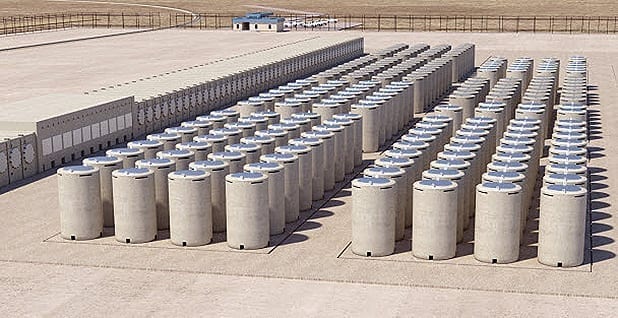
RadWaste Monitor Vol. 15 No. 31
Visit Archives | Return to Issue PDF
Visit Archives | Return to Issue PDF
RadWaste & Materials Monitor
Article 1 of 9
August 04, 2022
Texas, NRC spar over ‘major questions’ legal argument in interim storage suit

The Nuclear Regulatory Commission and the state of Texas traded blows this week about whether a recent Supreme Court decision moves the needle in the Lone Star State’s ongoing lawsuit against a proposed, privately owned interim storage facility for spent nuclear…
Partner Content
Jobs